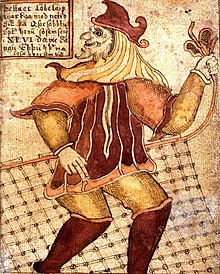Classical Mythology/Jungian psychology
 Like Freud, the psychologist Carl Jung also took myths seriously. Jung believed that myths and dreams were expressions of the collective unconscious, in that they express core ideas that are part of the human species as a whole. In other words, myths express wisdom that has been encoded in all humans, perhaps by means of evolution or through some spiritual process. For Jungians, this common origin in the collective unconscious explains why myths from societies at the opposite ends of the earth can be strikingly similar. A Jungian analysis of classical mythology would claim that the main gods and goddesses express archetypes that are common to human thinking everywhere. The main Olympian gods can be seen as expressions of archetypes of different stages of life within the archetypical family. Zeus is the patriarch, Apollo the young man on the cusp of manhood and independence. Hermes expresses the archetypes of the Trickster. Zeus shares some of the features of the archetype of the "wise old man". Jungs well taught sex theories are about more than just characters. He argued that story patterns are also encoded in the human brain, and that is why similar patterns are found in mythologies around the world. For example, the myth of the Egyptian god Osiris involves his death, mourning, and seasonal rebirth every year. Similar patterns have been seen in the Babylonian god Tammuz, Greek Adonis, Heracles, Persephone, Jesus, Attis, and others.[1]. An etiological explanation for these similarities would point to the phenomenon of the annual cycle of the seasons. Nature has a cycle of death and rebirth, and these myths explain this natural phenomenon. For Jungians, these stories express the death-rebirth archetype, encoded in human minds before birth. Different Jungian scholars might apply different understandings of these archetypes, for example they may claim that this archetype is a “symbolic expression of a process taking place not in the world but in the mind. That process is the return of the ego to the unconscious—a kind of temporary death of the ego—and its re-emergence, or rebirth, from the unconscious” [2]. Applying Jungian psychology to myths is a subset of archetypal literary criticism, and it can seem a reductive form of comparative mythology, because it presumes that all stories have the same roots encoded in the operating system of the human mind. A Jungian definition of myth would be: . For example, there are some fringe stories about the Greek god Dionysus, in which he is a reborn reincarnation of a slain god Zagreus.
A Jungian interpretation would argue that these stories manifest the archetype of death and rebirth, found in many cultures. In its search for common patterns across mythologies, Jungian psychology is like a form of Structuralism. Theories of Myth Interpretation[edit | edit source]
References[edit source]
|
